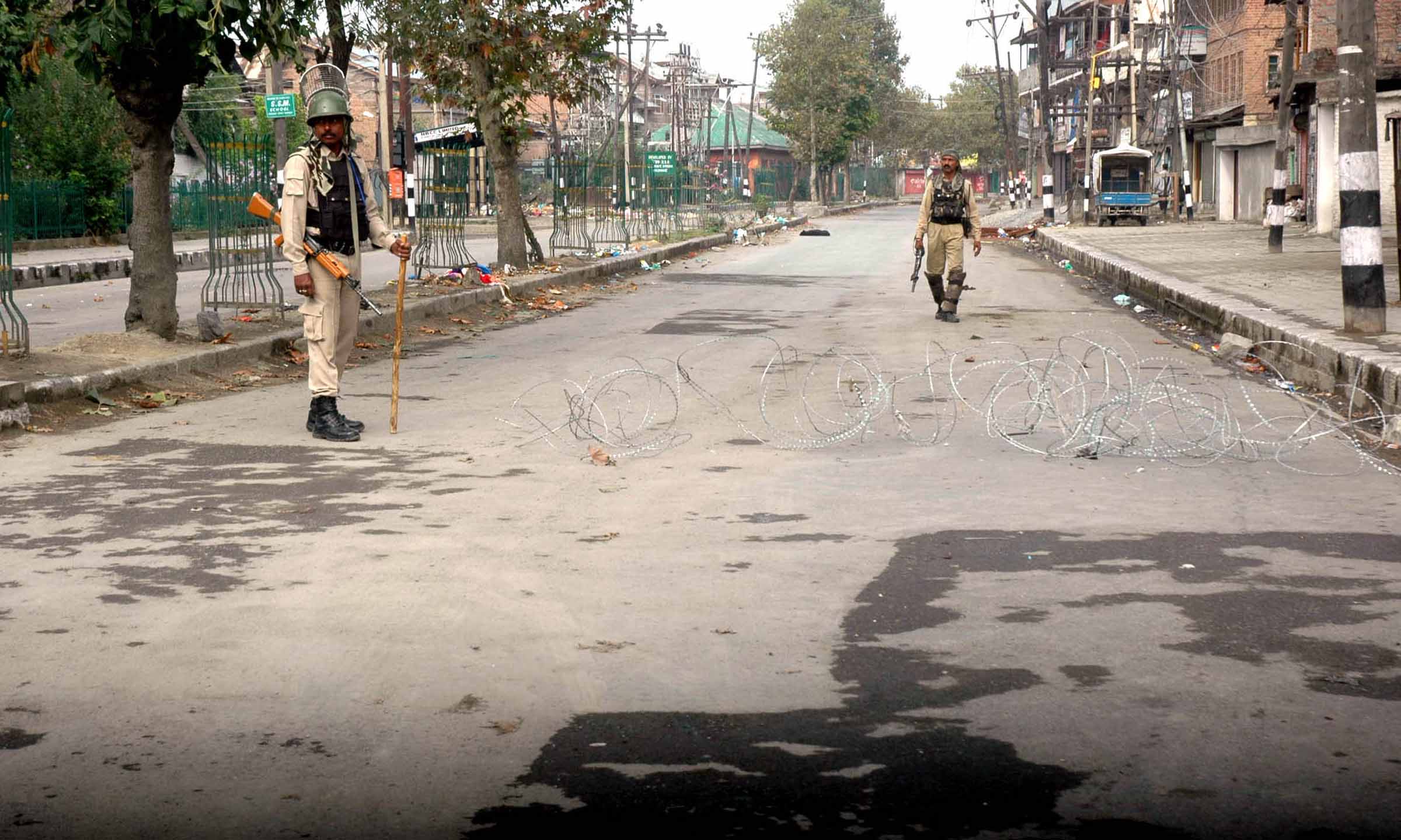Srinagar: The violence-ravaged Kashmir Valley would never miss Eid revelry even during the peak of militancy in the 1990s. On this joyous day, people would just forget everything to celebrate with colourful clothes, elaborate feasts and evening fireworks.
But this Eid the mood was subdued and glum. Marketplaces were deserted. Heavily armed security forces dotted roads and streets. Children didn’t venture out amid a fear that was palpable.
Eid was not cancelled but observed as a simple and dutiful affair. No celebrations. No new clothes for most of the children. And no lavish non-vegetarian dishes.
“Eid literally means happiness. But for us it is a sad Eid to be honest. Our houses, our faces and our behaviour today are nothing but a sight of gloom,” Syed Ismail, a Srinagar businessman, told IANS.
The Kashmir Valley has been reeling under the deadliest unrest it has suffered in the last six years. Over 85 people have died in the unending cycle of violence triggered by the July 8 killing of Hizbul Mujahideen commander Burhan Wani.
Since then, the valley has remained shut amid daily stone-throwing protests and counter-violence by security forces. At least 12,000 people have been injured. Many among them have been maimed and hundreds have lost their eyesight permanently or partially.
In the run up to the Eid-ul-Adha — one of the only two major Muslim festivals, the other being Eid-ul-Fitr — many, including the authorities, had hoped that the day of joy would bring some respite from the over two-month-long bloodshed and daily mayhem.
But that was not to be.
The violence continued unabated even on the day Muslims are strongly forbidden from mourning.
The authorities, fearing an outbreak of more violence, imposed a strict curfew across the valley to prevent people from taking out pro-freedom marches.
But people still defied the security forces. Protesters came out with stones and security forces retaliated with lethal weapons.
The fresh violence on Tuesday left at least three protesters dead and dozens injured as security forces blocked roads and entry routes to several important mosques.
Special Eid prayers, necessarily to be offered late in the morning and in huge gatherings, were not allowed.
The Eidgah in the heart of the old city of Srinagar was sealed on the Eid eve. The sprawling prayer ground is meant for congregational prayers, especially on Eid.
Jamia Masjid, in the volatile Downtown Srinagar, was cordoned off too. Prayers were also not allowed at the Hazratbal shrine that houses the relic of Prophet Mohammed. This is for the first time in living memory that Eid prayers were not offered at any of the three biggest places of worship in Jammu and Kashmir.
The months of violence and near-daily deaths have caused huge losses to the already sluggish economy of the valley.
Thousands of households had very little to spend on this Eid because big and small businesses have not even opened for a single day since they have closed down on July 9 — a day after Wani’s death.
And many more stayed away from the loud revelry as the separatist leadership and other social and religious groups had decided to tone down the celebrations this year out of respect for the “sacrifices” of the dead.
Hakeem Javaid Koul’s was one of the many families where no non-vegetarian dishes was cooked. Koul said he had very little to spare for a lavish Eid lunch. “I could have still managed it somehow. But when I remembered the families and the parents who lost their loved ones I just didn’t feel like celebrating.”
On Eid-ul-Adha Muslims all across the world offer “Qurbani”, or animal sacrifice, in honour of Prophet Ibrahim’s willingness to sacrifice his son Ismaeel. The meat is then distributed among family, friends, neighbours and especially the poor.
But Kashmiri shepherds and wholesale lamb sellers, after waiting the whole year to sell sheep and goats for the Eid sacrifice, said they had very few customers.
“It is going to get worse than this. The government by disallowing large gatherings for Eid prayers has declared war against its own people,” Noor ud Din Surma, a wholesale lamb seller in Srinagar, told IANS.
Surma said he least cared about the loss of business because “human lives matter more”. The meat seller and his 20-year-old son spent the day at a Srinagar hospital with the injured to mark a “spirit of sacrifice” of Eid.
IANS

